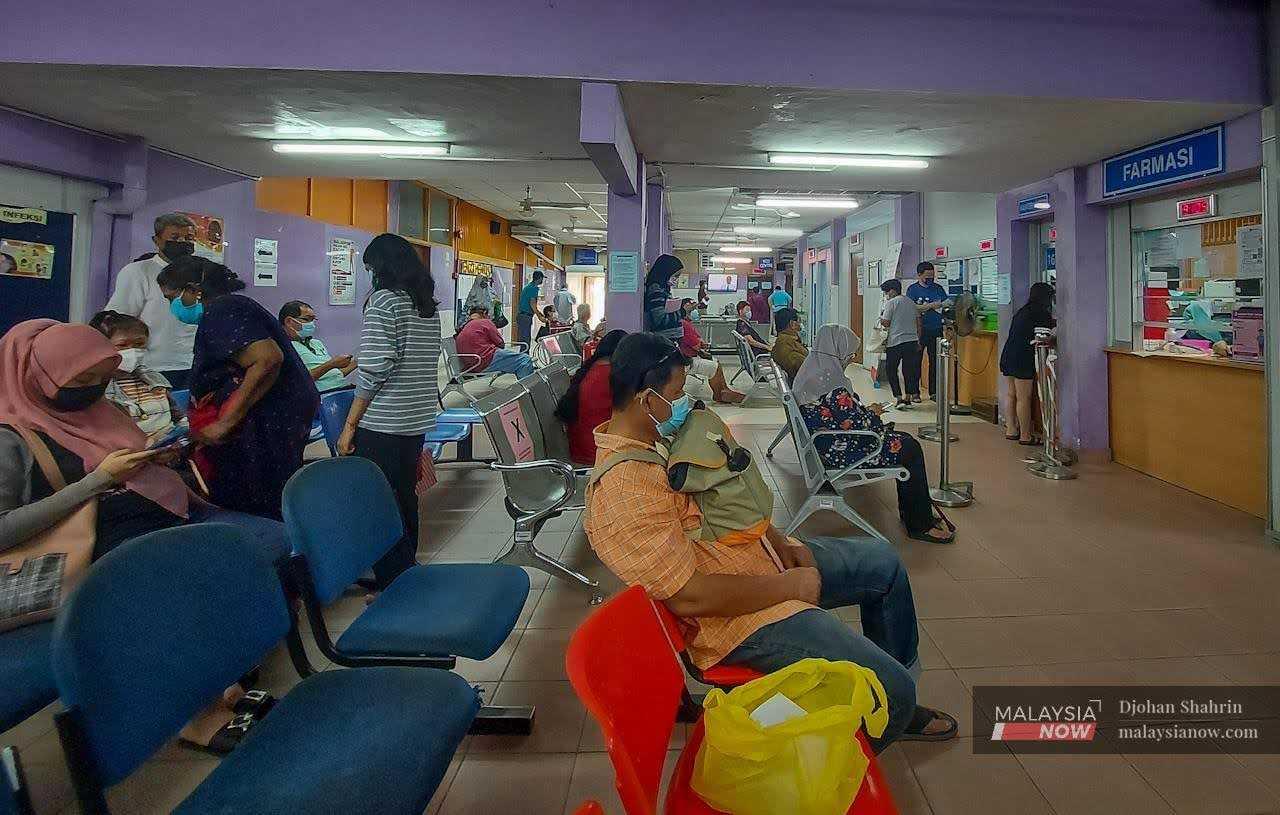Public health group calls for abolition of fees at govt facilities
Galen Centre says the fees are 'obsolete' and proposes a national health insurance scheme as a means of tackling healthcare financing.
Just In
A public health group today warned against increasing the fees for medical care at government facilities despite their "unsustainable nature", proposing instead a national health insurance scheme as a means of addressing the issue of healthcare financing.
Galen Centre for Health and Social Policy said the current system of charges per visit — RM1 for general outpatients and RM5 for specialist outpatients — was introduced in the mid 1980s.
"Every single patient entering the public health system has had more than 95% of their treatment cost subsidised by the public purse.
"As pointed out in the white paper, it has long been unsustainable," Galen CEO Azrul Mohd Khalib added, referring to the white paper on health tabled in the Dewan Rakyat today.
Nevertheless, he said, increasing these fees "was not an option".
He said increasing the charges from RM1 and RM5 to RM10 and RM50 respectively would amount to a spike of 900%.
"This may be neither publicly or politically acceptable. It would also be pointless as the amount of funds raised would still be insufficient for cost recovery," he said.
Describing the fees as "obsolete" and "inadequate for meaningful cost recovery", he said they also "mislead the public regarding the true cost of healthcare".
"Even the government frequently describes their services as 'free' or 'cheap'," he said.
"These charges now act as barriers to reform. Rather than increase the RM1 and RM5 charges, they should be removed altogether. People should not be required to pay anything initially at the point of care."
Sustainable healthcare financing was one of the pillars of the white paper tabled earlier today.
Welcoming its inclusion, Azrul nevertheless cautioned that the white paper would face the same challenges as previous reform efforts of gaining sufficient political commitment from the government of the day, ensuring sufficient resources, and tackling both the demands and crises of the day.
He said a national health insurance would involve "almost everyone" contributing to a common pool of funds which would then be used to fund healthcare.
"Such a scheme would be applicable to all workers and be based on a sliding scale linked to monthly income and age.
"There would be collective pooling of both funding and risk. It would begin to address the issue by co-sharing the burden and responsibility of financing the health care system. It has the potential to stabilise public subsidisation, allow space for cost-containment, maintain access and quality to essential services, improve access to innovative treatment, and fund equitable access to services in the private health space."
Subscribe to our newsletter
To be updated with all the latest news and analyses daily.
